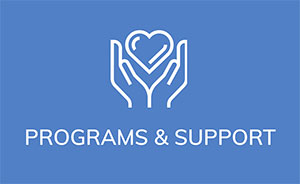Over the course of a year of monthly meetings, CLL Society Bloodlinewill teach the BASICS needed to understand CLL. It will also provide news, help with the acronyms and new vocabulary words, and offer simple fun quizzes.
MONTHLY QUIZ: CLL / SLL is considered incurable.
- True
- False
- It’s complicated
Answer: The correct answer is 3: It’s complicated. CLL / SLL is generally considered incurable and that is true for the vast majority of patients. However, some rare patients are still CLL free much longer than ten years after a bone marrow (hematopoietic stem cell) transplant, CAR-T therapy or FCR (a form of chemoimmunotherapy). Sure looks like some of them might be cured. Moreover, many patients’ CLL is so well controlled with various treatments that they eventually die of other causes. Though they still might harbor a few cancerous CLL cells, one might argue they have been “functionally cured.”
NEWS:
- CLL Society’s Celebrating Long Lives 5K Walk & Run is on Saturday, May 10th, and we hope you all can join us to help raise awareness. We are looking for support groups to be community ambassadors and coordinate a local team in their area. If you are interested or have questions, please reach out to [email protected].
- The PAN Foundation’s CLL assistance fund is accepting applications. Eligible patients can receive up to $2,000 in financial assistance to help with CLL treatment copay costs. If more assistance is needed, patients can apply for an additional $2,000 grant (as available).
- If you missed the webinar, Navigating CLL with a Comprehensive Wellness Approach, you can catch the replay on our education on-demand page. For those interested in nonpharmaceutical therapies, this webinar is a must.
THE BASICS: Treatment Choices
In prior issues of CLL Society Bloodline, we covered what needs to be done when first diagnosed, before treatment, and how to know when treatment is needed. In this issue, we broadly discuss frontline treatment choices. Treatment decision should always be individualized and depends on several factors including:
- Age, overall health, co-morbidities, other medications, and the amount of disease and its stage.
- Prognostic biomarkers (especially FISH, TP53 mutation and IGHV mutation).
- Personal preference.
Choices are complicated and there may be significant disagreement between well-meaning experts making it even harder to make a decision. The first or frontline treatments broadly fall into 3 categories but really only the last 2 should be considered:
- Chemoimmunotherapy or CIT:
- FCR (fludarabine, cyclophosphamide and rituximab), BR (bendamustine and rituximab) and CO (chlorambucil with obinutuzumab) are the most common. There is essentially no role for CIT today.
- Non-chemo options:
- Ibrutinib alone or with obinutuzumab (Gazyva) or with rituximab. Rituximab does not seem to improve outcomes compared to ibrutinib used alone. Ibrutinib is being used less and less with the approvals of acalabrutinib and zanubrutinib and is no longer a preferred option frontline.
- Acalabrutinib with or without obinutuzumab – less side effects than ibrutinib.
- Zanubrutinib – less side effects than ibrutinib and likely better efficacy.
- Venetoclax, usually with obinutuzumab This is a “fixed duration” therapy, finished in one year with all meds stopped.
- Venetoclax and acalabrutinib. This all oral “fixed duration” therapy is not FDA approved but is a preferred option in the important NCCN guidelines. The IV antibody obinutuzumab can be added for a “triplet” treatment.
- Clinical trials:
- These vary but offer excellent care, access to the latest therapies and for some, may be the best choice.
All of these are explained in more detail on https.//CLLSociety.org and will be featured the upcoming Bloodlines.
WORD/ACRONYM OF THE MONTH: MRD
MRD is an acronym for measurable residual disease or minimal residual disease. We prefer “measurable.” All tests have limits of detection. Flow cytometry can find a single cancer cell in 10,000 cells, and ClonoSeq, a NGS (next generation (genetic) sequencing) test, in a million. uMRD (undetectable MRD) formerly called MRD negative means that no CLL was detected at the limits of the test. This is usually very good news and can be associated with very long remissions but shouldn’t be confused with being cured. Some trials are now using MRD status to determine best CLL management.
If the CLL Society has helped you or a loved one, please consider making a donation.

